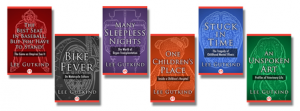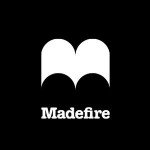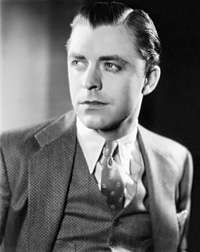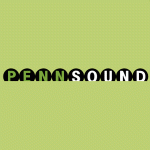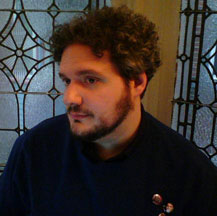Lee Gutkind: True Crime
March 8, 2014 by David
Filed under Non-Fiction, WritersCast
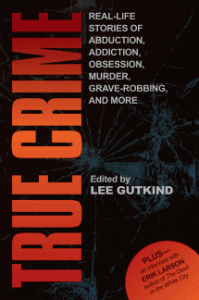 True Crime: Real-Life Stories of Abduction, Addiction, Obsession, Murder, Grave-Robbing and More – 978-1-937163-14-3 – paperback – InFACT Books – $15.95 (ebook versions available at lower prices)
True Crime: Real-Life Stories of Abduction, Addiction, Obsession, Murder, Grave-Robbing and More – 978-1-937163-14-3 – paperback – InFACT Books – $15.95 (ebook versions available at lower prices)
Lee Gutkind is a long time writer and teacher of writing. He is the author or editor of more than 25 books and is also the founder and editor of Creative Nonfiction, a literary magazine that publishes narrative nonfiction exclusively. In many ways, he is a central figure in the growing category of creative nonfiction, a category of writing that has become significant only in the past thirty years.
True Crime is a collection, mostly but not all first person narratives of some very scary stuff. I think true crime writing can be much more disturbing than even the scariest fiction stories, mainly because we know these stories are true, and that the suffering we are reading about was experienced by real people. At the same time, what makes these experiences meaningful to us is the writers’ ability to transform direct experience into compelling narrative. They’ve still got to tell a great story or else the experiences they write about, regardless of their factual existence, will not have truly deep or meaningful impact on readers.
While this sometimes painful to read book is not what I usually am drawn to read, since my goal with Writerscast has always been to broaden my reading, with Lee Gutkind’s True Crime, I have certainly succeeded in going beyond my regular literary consumption. This is a powerful collection of narratives, almost all of which really do achieve the status of literary works, by virtue of their success in the transformation of direct experience into story telling. There is some excellent writing here, and stories well worth reading.
If I had to pick a favorite, it would be Girl Fighting, by Laurie Lynn Drummond, a former Louisiana police officer who is now (a very good) writer. Perhaps the most powerful and emotionally wrenching piece for me is Gabrielle Giffords Shooting: A Fatal Chain of Events Unfolds, a retelling that made me cry; perhaps the most painful and thought provoking is Spectacle: The Lynching of Claude Neal, but there are many others that moved me, and there were no stories I did not find interesting to read.
I can recommend this book to anyone interested in contemporary American writing.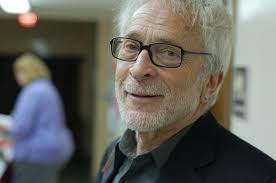 Don’t mistake this book for journalism, recounting of violent crimes to entertain. This book is about the nature of violence and the varieties of human behavior we experience but sometimes do not understand.
Don’t mistake this book for journalism, recounting of violent crimes to entertain. This book is about the nature of violence and the varieties of human behavior we experience but sometimes do not understand.
Received a few days after I posted this interview: Open Road Media is pleased to announce the ebook publication of six classic works by Lee Gutkind, hailed by Vanity Fair as “the godfather behind creative nonfiction,” available on March 11, 2014.
Podcast: Play in new window | Download
Publishing Talks: David Wilk interviews DeWitt Henry of Ploughshares
February 10, 2014 by David
Filed under Publishing History, PublishingTalks
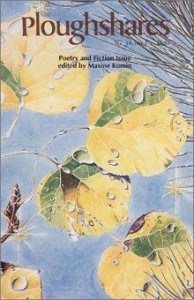 Publishing Talks began as a series of conversations with book industry professionals and other smart people about the future of publishing, books, and culture. As we continue to experience disruption and change in all media businesses, I’ve been talking with some of the people involved in our industry about how they believe publishing might evolve as our culture is affected by technology, climate change, population density, and the ebb and flow of civilization and economics.
Publishing Talks began as a series of conversations with book industry professionals and other smart people about the future of publishing, books, and culture. As we continue to experience disruption and change in all media businesses, I’ve been talking with some of the people involved in our industry about how they believe publishing might evolve as our culture is affected by technology, climate change, population density, and the ebb and flow of civilization and economics.
Recently, the series has been expanding to include conversations about a wider range of subjects beyond my initial interest in the future of publishing. I’ve talked with editors and publishers who have been innovators and leaders in independent publishing in the past and into the present, and will continue to explore the past, present and future of writing, books, and publishing in all sorts of forms and formats, as change continues to be the one constant we can count on.
It’s my hope that these conversations can help us understand the outlines of what is happening in publishing and writing, and how we might ourselves interact with and influence the future of publishing as it unfolds. This week’s interview reflects my interest in comic art, illustrated story telling and new technology as a platform for expanding story telling in interesting and challenging ways.
Ploughshares is one of the great literary magazines of the last fifty years. Founded in 1971 in Boston by writer, teacher and scholar DeWitt Henry and writer and bar owner Peter O’Malley, it has gone on brilliantly from very humble beginnings to publish an extraordinary range of writing. Founded in a bar called the Plough and the Stars in Cambridge, Massachusetts, Ploughshares to give the young and upcoming writers of its time a voice and a platform, the magazine has been a literal breeding ground for great writers of fiction, poetry and nonfiction as well.
One of its innovations was to invite writers to guest edit individual issues. The list of editors is pretty incredible, including Seamus Heaney, Derek Walcott, Rita Dove, James Alan McPherson, Philip Levine, Gerald Stern, Raymond Carver, Rosellen Brown, Maxine Kumin, Donald Hall, Marilyn Hacker, Mark Doty, Richard Ford, Sherman Alexie, and many others. Ploughshares editors have received almost every award given in American writing. Throughout its now celebrated history, Ploughshares has managed to maintain a high level of excellence in writing and has avoided being trapped by the narrowness of a particular school or narrow vision of what American writing can be. It has consistently nurtured new talent, and continues today to bring attention to new writers. And lately, Ploughshares has broadened the definition of what a literary magazine can be with an innovative series of ebooks called Ploughshares Solos.
Interviewing DeWitt Henry about the history of the magazine, bis work as editor and writer, and the current and future of Ploughshares was a great pleasure for me. Having been involved in literary publishing and distribution myself, I know how incredibly difficult it is to sustain both the artistic and structural vision in this kind of publishing. Ploughshares truly represents an extraordinary accomplishment for those who have worked on it, published in it, and of course read the magazine during the many years of its existence.
There’s an excellent history of the magazine on it website. And you might want to visit DeWitt Henry’s own website to learn more about him as well. He is am accomplished and interesting writer too. Alert to listeners, as this is part of an effort to document the oral history of literary publishing, this is a longer than usual podcast – but worth your time to listen.
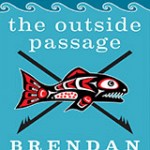
Podcast: Play in new window | Download
Fred Seibert talking Frederator and more
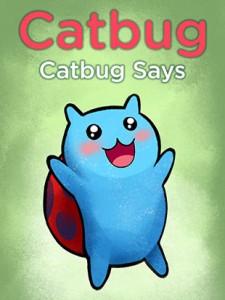 As some of you may know, I am working with Frederator Studios on a digital publishing program called Frederator Books. We are experimenting in all sorts of ways, mostly doing creative new ebooks for kids of all ages. Frederator is the brainchild of long time media genius Fred Seibert. We did a video interview together in December 2013 and posted the unedited audio track to Soundclound. It’s a bit long and covers a lot of ground, but anyone interested in media and animation will find Fred’s conversation interesting and constructive. We talked about Fred’s background and experience in a long and innovative career, what Frederator is doing now and in the future, and also about what we are trying to do in digital publishing.
As some of you may know, I am working with Frederator Studios on a digital publishing program called Frederator Books. We are experimenting in all sorts of ways, mostly doing creative new ebooks for kids of all ages. Frederator is the brainchild of long time media genius Fred Seibert. We did a video interview together in December 2013 and posted the unedited audio track to Soundclound. It’s a bit long and covers a lot of ground, but anyone interested in media and animation will find Fred’s conversation interesting and constructive. We talked about Fred’s background and experience in a long and innovative career, what Frederator is doing now and in the future, and also about what we are trying to do in digital publishing.
You can listen to the entire interview here. Sometime later in 2014, I will post an edited version of the interview at Writerscast also.
Frederator Studios and Cartoon Hangover make cartoons for television, movies and the Internet, and program the networks Channel Frederator and Cartoon Hangover.
Frederator Studios was founded by Fred Seibert in 1998. Since then the company has produced 16 series & over 200 short films including The Fairly OddParents, Fanboy & Chum Chum, and Adventure Time. Our shows are on Nickelodeon, Nick Jr, Cartoon Network, and Channel Frederator. Frederator is in producing partnership with Sony Pictures Animation and YouTube.
Cartoon Hangover is the studio’s television channel distributed on YouTube, launched in November 2012. Pendleton Ward’s Bravest Warriors (developed by Breehn Burns, Will McRobb & Chris Viscardi) was the first hit series, followed by James Kochalka’s SuperF*ckers, and the Too Cool! Cartoons.
Frederator Networks’ pioneering Internet animation channels began in 2005 with Channel Frederator, and has expanded to include The Wubbcast, ReFrederator and Cartoon Hangover.
– See more here.
Here’s the “standard” Fred biography.
Daniel Pink: To Sell is Human
January 26, 2014 by David
Filed under Non-Fiction, WritersCast
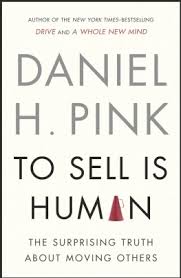 To Sell Is Human: The Surprising Truth About Moving Others – 978-1594631900 – Riverhead Books – paperback – $16 – ebook versions available at lower prices.
To Sell Is Human: The Surprising Truth About Moving Others – 978-1594631900 – Riverhead Books – paperback – $16 – ebook versions available at lower prices.
Daniel Pink is a terrific writer and in addition, he is extremely cogent in his thinking and presentation of ideas. The result is that his writing is very persuasive. I have long thought that selling is something that most of us do in one form or another on many occasions. Selling in that day to day sense, is about persuasion. Some of us are better at it than others, but it’s part of the fabric of human relationships. So I was very excited to discover this book and having read it, am now a big fan of Daniel Pink’s thinking on this subject.
Pink spent a lot of time and energy studying how the new American labor force works. In To Sell is Human he shows clearly that in today’s connected world, with selling defined as *moving* or *persuading* others – customers or colleagues, those you work for and those who work for you – all of us are ultimately involved in a form of selling.
As Pink himself puts it: “Whether we’re employees pitching colleagues on a new idea, entrepreneurs enticing funders to invest, or parents and teachers cajoling children to study, we spend our days trying to move others.”
Pink brings this home by drawing on social science but his insights are what makes this book special. The old rules of selling don’t apply anymore, and he tells us what we need to do in order to be successful in the modern world of collaboration and constant change.
Pink presents six successors to the elevator pitch, three rules for understanding others, five frames that can help us be more persuasive then ever, and more. This books is both visionary and practical, and really may change the way you think and therefore how you act in both work and personal social situations.
Dan Pink is a prolific author and motivational speaker. Dan’s first book, Free Agent Nation: The Future of Working for Yourself, was a Washington Post bestseller. He also wrote The Adventures of Johnny Bunko: The Last Career Guide You’ll Ever Need (the first American business book done in manga form). A Whole New Mind: Why Right-Brainers Will Rule the Future and another excellent book, Drive: The Surprising Truth About What Motivates Us. In total, this is a very impressive body of work. And as you can readily imagine, he is a great conversationalist and therefore we had a terrifically interesting conversation. A visit to his website is highly recommended.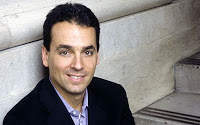

Podcast: Play in new window | Download
Publishing Talks: David Wilk interviews Liam Sharp and Ben Abernathy of Madefire
January 6, 2014 by David
Filed under Ebooks and Digital Publishing, PublishingTalks, Technology
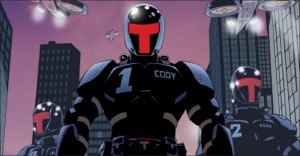 Publishing Talks began as a series of conversations with book industry professionals and other smart people about the future of publishing, books, and culture. As we continue to experience disruption and change in all media businesses, I’ve been talking with some of the people involved in our industry about how they believe publishing might evolve as our culture is affected by technology, climate change, population density, and the ebb and flow of civilization and economics.
Publishing Talks began as a series of conversations with book industry professionals and other smart people about the future of publishing, books, and culture. As we continue to experience disruption and change in all media businesses, I’ve been talking with some of the people involved in our industry about how they believe publishing might evolve as our culture is affected by technology, climate change, population density, and the ebb and flow of civilization and economics.
Recently, the series has been expanding recently to include conversations about a wider range of subjects than my initial interest in the future of publishing. I’ve talked with editors and publishers who have been innovators and leaders in independent publishing in the past and into the present, and will continue to explore the past, present and future of writing, books, and publishing in all sorts of forms and formats, as change continues to be the one constant we can count on.
It’s my hope that these conversations can help us understand the outlines of what is happening in publishing and writing, and how we might ourselves interact with and influence the future of publishing as it unfolds. This week’s interview reflects my interest in comic art, illustrated story telling and new technology as a platform for expanding story telling in interesting and challenging ways.
Madefire is a very cool development in the evolution of technology platforms that enable digital storytelling. Founded by Ben Wolstenholme, Eugene Walden and artist/writer Liam Sharp, Madefire has big ambitions, and has drawn significant support from investors, creators and readers. In their own words, it’s a big play: “Madefire is undertaking an epic journey – One that we believe will revolutionize how stories are told, read, and shared. One that will transform a once static medium into an interactive experience that unfolds dynamically on mobile devices, and evolves with each new episode. It’s our Motion Book Tool that will make all this possible. We built it to unite the timeless beauty of sequential art with cutting-edge technology, and to give new creative freedom to the world’s most visionary creators and storytellers. All in the service of advancing the art of storytelling.”
At the October 2013 New York Comicon, I had a chance to get a demo of the software in action and was impressed by the Madefire approach, which provides comic artists with a whole new set of tools to enhance the visual storytelling mode in digital form. What is most appealing is the organicism of the approach – they are not trying to overwhelm us with game based features, but enabling the creators to expand their vision and engage their readers. It is indeed a big project and new developments continue to emerge. They call what they are making “Motion Books” which gets across pretty clearly what they are after. Their alliance with DeviantArt is a mind opening approach to publishing and engaging with communities of readers and creators online.
For this Publishing Talks interview, I spoke with both founder and CCO Liam Sharp and editor Ben Abernathy, formerly a group editor at DC Comics. I highly recommend downloading the Madefire app and experiencing some of the work that has been made using the Madefire tools. Listeners please note, this is a relatively long interview at just over 40 minutes.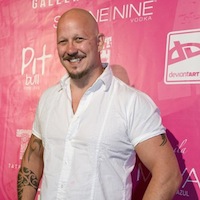
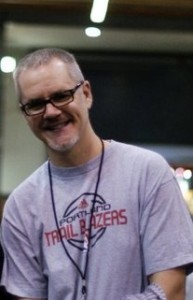
Podcast: Play in new window | Download
Margaret Talbot: The Entertainer
December 27, 2013 by David
Filed under Non-Fiction, WritersCast
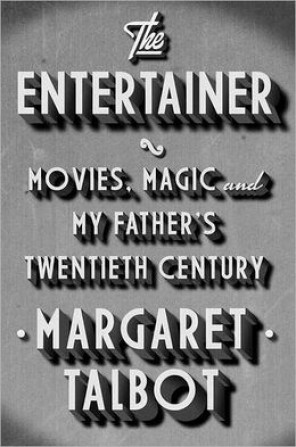 The Entertainer: Movies, Magic and My Father’s Twentieth Century – 978-1594631887 – Riverhead Books – Paperback – $18.00 (ebook versions available at lower prices) – published November 5, 2013
The Entertainer: Movies, Magic and My Father’s Twentieth Century – 978-1594631887 – Riverhead Books – Paperback – $18.00 (ebook versions available at lower prices) – published November 5, 2013
Margaret Talbot was the youngest child in the last marriage of actor Lyle Talbot, so when she was growing up in 1950s and 1960s Los Angeles, her father, as a much older man, was a direct link to a much earlier period of American show business. Lyle was born in Nebraska in 1902, and left his small home town as soon as he could – in 1916 he joined a traveling carnival. From there he went on to an almost emblematic life, acting in traveling theater groups and getting to Hollywood just in time for the talkies. Handsome and debonair, he was a solid actor in some major Warner Brothers pictures with stars like Humphrey Bogart and Carole Lombard. Later he appeared steadily in B-pictures and has some renown for being the lead in the now famous (but infinitely terrible) Ed Wood made Plan 9 from Outer Space, and as many other former film actors did, he ultimately became a fixture on television, including the recurring role of Joe Randolph on the long-running Adventures of Ozzie and Harriet.
A respected writer for the New Yorker, Margaret Talbot does much more than just telling the story of her father’s life. The Entertainer is a loving biography of Lyle, but it is also a cultural history of modern American show business told from the inside. And because Talbot is a sharp observer and an experienced journalist – as well as a loving daughter – she is able to see both her father and the world he lived in and through with both clarity and appreciation. And she is a really good writer too.
Some relatively few individuals have had the great good fortune to find their way into this part of the culture; whatever their roles, actors, stagehands, directors, camera operators, it was and still is a business, a lifestyle, and a world that was both magical and mundane, real and made up. For all who were and have been in the film and television industry in whatever roles, the magic is real, and many of them, if not all, could be imagined as the “lucky ones” who get to be a part of the cultural zeitgeist that so many aspire to but never directly experience. While Lyle Talbot never achieved stardom, he was a deservedly working actor in Hollywood for almost sixty years. Now his daughter has placed him at the center of a story both brilliantly and beautifully told, allowing us to understand the era in which he lived and worked.
I enjoyed this book as a work of cultural history well told, and it was also special for me because my own grandfather, like Lyle Talbot in love with theater and the movies, worked for Warner Brothers from the late 1920s into the early 1950s, and then my father worked in television and film for almost sixty years, so Margaret’s experiences as a child of show business were especially resonant for me, and having the opportunity to speak with her was great fun.
The Entertainer amplifies the story of 20th century Hollywood for any of us who still believe in its magic. Visit the author’s website where there is more about the book and her work.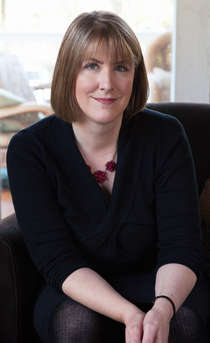
Podcast: Play in new window | Download
Publishing Talks: David Wilk interviews Charles Bernstein and Al Filreis of PennSound
December 4, 2013 by David
Filed under Publishing History, PublishingTalks, Technology
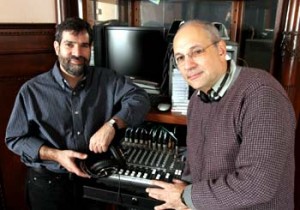 In this series of interviews, called Publishing Talks, I have been talking to book industry professionals and other smart people about the future of publishing, books, and culture. This is a period of disruption and change for all media businesses. We must wonder now, how will publishing evolve as our culture is affected by technology, climate change, population density, and the ebb and flow of civilization and economics?
In this series of interviews, called Publishing Talks, I have been talking to book industry professionals and other smart people about the future of publishing, books, and culture. This is a period of disruption and change for all media businesses. We must wonder now, how will publishing evolve as our culture is affected by technology, climate change, population density, and the ebb and flow of civilization and economics?
It’s my hope that these conversations can help us understand the outlines of what is happening in publishing and writing, and how we might ourselves interact with and influence the future of publishing as it unfolds.
PennSound is a very special online resource that was instigated by founders Al Filreis and Charles Bernstein with the incredible support of the University of Pennsylvania in Philadelphia. There is really nothing like it in the world, and for anyone interested in poetry, poetics, or the literary world of the past 100 years, it is an incredibly important resource. The energy and dedication that has gone into this unmatched collection of recordings of poets reading, lecturing and talking about poetry is a gift whose impact will be felt for many years to come.
Filreis wears many hats – he is Kelly Professor at UPenn, Director, Center for Programs in Contemporary Writing, Co-Director, PennSound, Publisher of the literary magazine Jacket2 as well as Faculty Director, Kelly Writers House. In addition, he is the author of a number of books of criticism. Charles Bernstein, an old friend of mine, is one of the most important poets and critical thinkers of his generation of writers. He was the David Gray Professor of Poetry and Letters at the SUNY Buffalo and Director of the Poetics Program, which he co-founded with poet Robert Creeley. At SUNY, he co-founded the Electronic Poetry Center with Loss Glazier. Charles is currently the Donald T. Regan Professor of English and Comparative Literature at the University Pennsylvania. He was a co-founder also of the important literary magazine L-A-N-G-U-A-G-E and is the author of many books of poetry and theoretical writings about poetry, language and thinking. Also in this discussion is Michael Hennessey, the editor of PennSound, and author of the “PennSound Daily” column. Michael holds an MFA in Creative Writing from Emerson College and has published critical work in magazines and anthologies.
I wanted to talk to Filreis, Bernstein and Hennessey about how PennSound came into being, to learn more about its scope and breadth, and to hear first hand their plans for the future. My hope is that our discussion will draw as much attention and support to PennSound as possible. And I can’t help enjoying the appropriateness of presenting an audio experience of this essential audio resource. There is something new and compelling posted at PennSound almost every day. Please visit, spend some time, and enjoy the rich trove of poetry as spoken and discussed by the poets themselves.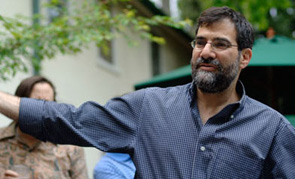 Even those who don’t read or even like poetry have their minds changed by the experience of hearing the words out loud.
Even those who don’t read or even like poetry have their minds changed by the experience of hearing the words out loud.
Podcast: Play in new window | Download
Paul Conroy: Under the Wire: Marie Colvin’s Final Assignment
November 3, 2013 by David
Filed under Non-Fiction, WritersCast
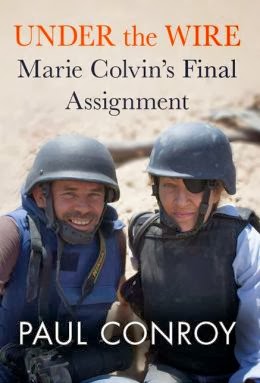 978-1602862364 – Weinstein Books – hardcover – October 8, 2013 – $26.00 (ebook versions available, prices vary depending on retailer)
978-1602862364 – Weinstein Books – hardcover – October 8, 2013 – $26.00 (ebook versions available, prices vary depending on retailer)
Marie Colvin was an award-winning journalist who wrote principally for the London Sunday Times for almost thirty years until she was killed covering the siege of Homs in Syria in February, 2012. She was raised in Oyster Bay (Long Island), NY, graduated from Yale in 1978 who worked for the British newspaper The Sunday Times from 1985 until her death.
Marie was an activist journalist in the best sense of the word, committed to reporting the lives and conditions of the oppressed and especially civilians suffering in wars, armed conflicts and governmental actions. Her writing was vivid and clear, gripping and very muscular.
Colvin specialized in the Middle East, but also worked in East Timor, Sri Lanka, Chechniya and the Balkans. She was recognized by the British Press awards for her reporting in Chechniya (and an amazing escape from that war zone, also grippingly reported). In East Timor in 1999, she helped save the lives of 1,500 refugees stranded in a United Nations compound that was surrounded by the Indonesian Army after the Timorese chose independence from Indonesia in a referendum. Colvin and two other journalists refused to leave and forced the UN to stay as well, and eventually the refugees were extracted and taken in by Australia.
In 2001 she became the first Western journalist in years to enter Tamil Tiger rebel territory in northern Sri Lanka. When she returned to the government-controlled area, her group was fired on by Sri Lankan military, and she was wounded by shrapnel, losing the use of an eye. She famously wrote a 3,500 word dispatch about her adventure while in the hospital in NY for surgery. From that time onward, her black pirate-style eye-patch became the emblem that represented her irrepressible spirit to all.
John Burns, the veteran New York Times foreign correspondent, called her “one of the most respected and celebrated reporters on Fleet Street…She was, of course, absolutely fearless, though she knew the dangers well.”
Alan Philps, a former Telegraph foreign correspondent said: “What she brought to journalism was being a great eyewitness and being incredibly brave. It was a role she settled into and she never saw another form of journalism she wanted to do, but that meant she sacrificed everything for the job.”
In 2010 at a London newspaper industry service for fallen British journalists, she gave a moving speech about the work and risks of foreign correspondents: “We always have to ask ourselves whether the level of risk is worth the story. What is bravery, and what is bravado?
“Journalists covering combat shoulder great responsibilities and face difficult choices. Sometimes they pay the ultimate price.”
Marie Colvin reported from Libya in the middle of many battle zones during the revolution against Qadaffi, where she worked with photographer Paul Conroy, who became a close friend of Colvin’s. In 2012, the two of them, working for the Sunday Times, made their way into Homs in Syria, where the government was bombarding the local population into submission.
Under the Wire is Conroy’s story about his friendship and work with Marie Colvin in Libya and Syria. Most of the book is a blow by blow account of their time in Homs, where Marie was killed while trying to leave Homs after many days in terrible danger, along with French photographer Remi Ochlik and Conroy was grievously wounded as well.
The book is a vivid and powerful account, not only of the work of the foreign correspondents who went to Syria to document what was going on there, but of the people in the country on the rebel side, who wanted Marie, Paul and other western journalists there to report what was happening. Acts of bravery, selflessness and heroism abound.
Paul Conroy’s story is a gripping and painful celebration of the human spirit, full of bravery and hope and a wonderful memorial to the work and life of Marie Colvin. It’s also a reminder, as the civil war in Syria continues, of how much we need people like Marie to serve as a public conscience in the face of oppression and state sponsored violence.
Marie Colvin’s work has been published as On the Front Line: The Collected Journalism of Marie Colvin. Visit her website to learn more about her life and work, and the Marie Colvin Memorial Fund. The Colvin family has established a memorial fund in honor of Marie. The fund will direct donations to charitable and educational organizations that reflect Marie’s lifelong dedication to humanitarian aid, human rights, journalism and education. 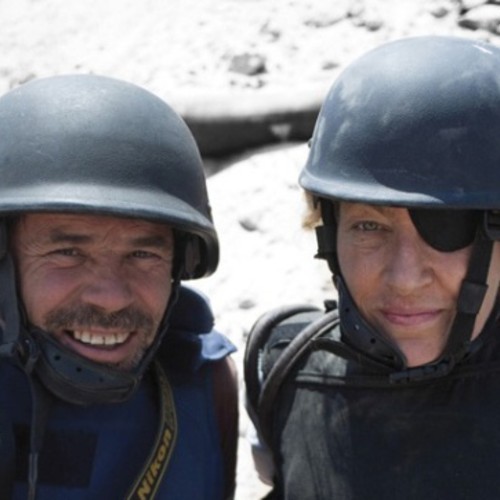
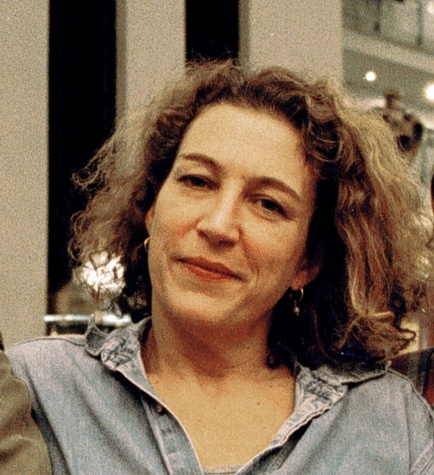
Podcast: Play in new window | Download
Douglas Trevor: Girls I Know (A Novel)
October 2, 2013 by David
Filed under Fiction, WritersCast
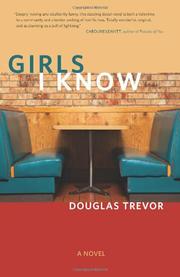 978-0983150534 – Sixoneseven Books – paperback – May 1, 2013 – $15.95 (ebook versions available at lower prices)
978-0983150534 – Sixoneseven Books – paperback – May 1, 2013 – $15.95 (ebook versions available at lower prices)
A debut novel set in Boston, Girls I Know has an unusual narrative structure that sometimes feels like a love song to the city of Boston as much as a novel about the protagonist, tortured failed graduate student, Walt Steadman. Walt is a classic nebbish – dropped out of graduate school writing a thesis on an obscure poetic subject, making his living now as a sperm donor and doing odd jobs.
Walt is painfully obsessive – as a way to channel his feelings of failure and indirection. He goes to the same small coffee shop for breakfast almost every day, where he befriends the owners and their daughter, Mercedes. He loves Boston in an obsessive way too. The real story of the novel begins when Walt is survives a terrible shooting at his favorite restaurant which leaves four people dead, including his friends.
Now he is forced to confront himself and in his recovery, try to find the self he has buried in his self indulgent lifestyle. The girls he knows are both complicated – the effervescent Ginger Newton, Harvard undergraduate – another obsessive, but a much more active one, she is writing a book called Girls I Know about women and their jobs and the heartbroken and speechless Mercedes, whose parents are now dead. How he interacts with these two “girls” on his path to self discovery and redemption are what this book is really about.
I liked this book much more than I initially thought I would (coming of age stories are not usually my forte as a reader). Trevor is a very good storyteller, and his characters are all interesting and well drawn. And his Boston comes to life throughout the book. Trevor knows his way around characters and places and his writing is strong. His collection of short fiction, The Thin Tear In The Fabric Of Space, won the Iowa Short Fiction award in 2005. Author website here.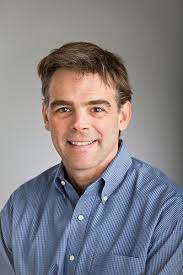 Kudos to this independent publisher, Sixoneseven, for doing an excellent production job and a serious effort to market and promote a very good book.
Kudos to this independent publisher, Sixoneseven, for doing an excellent production job and a serious effort to market and promote a very good book.
Podcast: Play in new window | Download
Douglas Rushkoff: Present Shock: When Everything Happens Now
September 21, 2013 by David
Filed under Non-Fiction, WritersCast
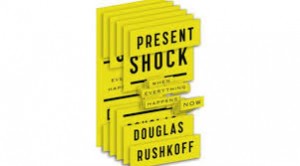 978-1591844761 – Current – Hardcover – $26.95 (ebook versions available at lower prices, and paperback edition due February 2014)
978-1591844761 – Current – Hardcover – $26.95 (ebook versions available at lower prices, and paperback edition due February 2014)
“If the end of the twentieth century can be characterized by futurism, the twenty-first can be defined by presentism.”
As it happens, I started this Writerscast project as an antidote to my own sense of what Douglas Rushkoff calls Present Shock, which is about how time, technology, attention, human intelligence, culture, meaning, advertising, commerce and belief systems that mark 21st century modern life have changed the way we experience our lives. This is an important book that having read and thought about, I can highly recommend.
What is ironic is that all of the things about our time that Rushkoff talks about in Present Shock, our feeling of being too busy and overwhelmed with input, our inability to filter out what does not matter to us and to focus on what does matter most are all the reasons why so many people I know will end up not reading this book at all. In fact the author felt those same issues during the writing of the book, and had to devise a plan and method that allowed him to concentrate on getting the work done.
You are not alone if you are feeling the need to make some space for yourself. It took me much longer to read this book than it would have some years ago. And it took me much longer to find the space in my life to write this short piece and post it than I am comfortable with. Technology in communication has enabled tremendous gains for many of us, while at the same time enslaving us to our devices.
Rushkoff brilliantly describes what has happened to us – the end of narrative, changes in the way we perceive and operate in time, what he calls digiphrenia – mental chaos provoked by digital experience – our need to escape the present, and our inability to filter information and sensory input. We instinctively know what he is talking about because we experience it ourselves every day.
But most of the time, most of us believe all of these concerns are personal and individual – how do I learn how to cope with the modern world? I think Rushkoff’s point in this book is that these are not individual problems, they are structural, and we need to start thinking about ways we can alter the course of our culture, to take control of technology, to act rather than be acted upon. In that way, this is an inspiring book, which I hope will lead to change in thinking and behavior.
I interviewed Doug about one of his earlier books, Program or Be Programmed. He is a terrific talker as well as writer and I am sure you will enjoy listening to our conversation. 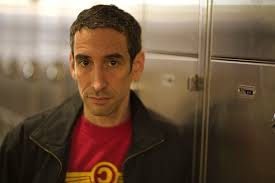
Podcast: Play in new window | Download

